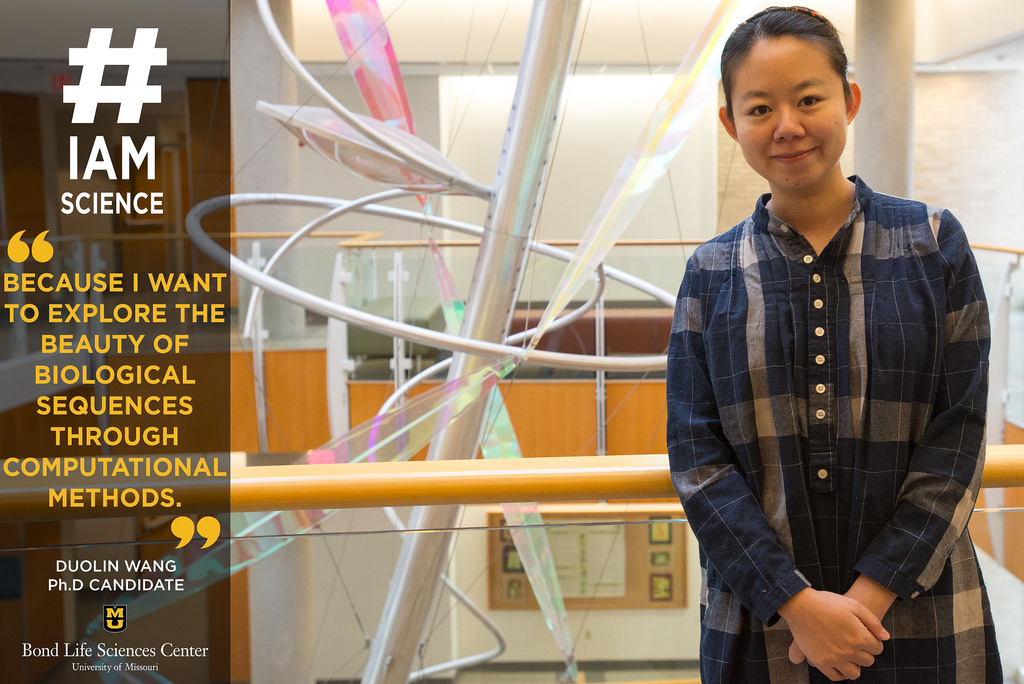Published on

Duolin Wang, a researcher in the Dong Xu lab in Bond LSC, works in bioinformatics. | photo by Allison Scott, Bond LSC
By Allison Scott | Bond Life Sciences Center
“#IAmScience because I want to explore the beauty of biological sequences through computational methods.”
Bioinformatics is a melting pot in the world of science. As a study of analyzing complex data, it’s not a field for everyone, but its applications are vast.
Duolin Wang, a researcher in the Dong Xu Lab at Bond LSC, isn’t intimidated by the complexities her field presents. She came to America from China to conduct research for Xu’s lab while she simultaneously works on her thesis to earn her Ph.D. from Jilin University in China.
“The reason I came to American is because the education is great,” Wang said. “It provides me a very good opportunity to study and do research.”
Wang and her lab practice deep learning, which is a state-of-the-art approach to machine learning.
“There has been a growing interest in applying deep learning methods to understanding the function of biological sequences directly from sequence,” Wang said. “It allows computational models composed of multiple processing layers to learn representations of data with multiple levels of abstraction.”
Essentially, deep learning is a way to better understand the complex data that the bioinformatics field covers. For instance, it turns terabytes of information on a sequence to help researchers predict how best to improve its effectiveness.
She didn’t just stumble into her research position, though. Her supervisor at her university in China had collaborated with Xu in the past. When Xu traveled overseas, Wang was able to meet him in person.
“I showed my interest in his research, and I asked him if I could come to the United States to continue my research,” Wang said.
The rest is history. In the three years she’s been at Mizzou, Wang has been able to work on a number of projects in her field. That’s largely thanks to Xu’s flexibility with the topics she focuses on.
“I have freedom to choose what I want to study,” Wang said. “As a scientist, I can explore what I’m really interested in. Professor Xu didn’t make any barriers to my research field; I can show him my interests and he can see whether it’s a good topic and if I can explore it.”
Wang has even written a few papers, including one for Monsanto thanks to the help of Juexin Wang who also works in the Xu lab. That experience has helped her to prepare for a future in research writing proposals.
It’s not all about the work, though.
“The most valuable thing I got from this lab is the people,” Wang said. “They’re excellent scientists, and I’ve learned a lot from them.”
Wang is on track to finish her Ph.D. this summer, but she’d like to continue what she’s been doing at Bond LSC.
“I might do a postdoc here after I earn my degree,” Wang said. “I want to continue my research here.”